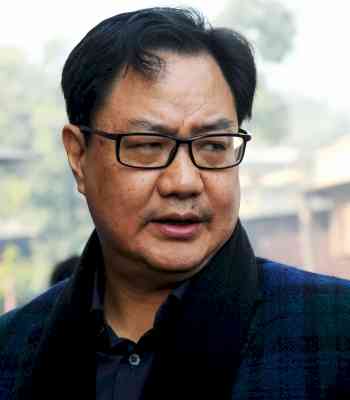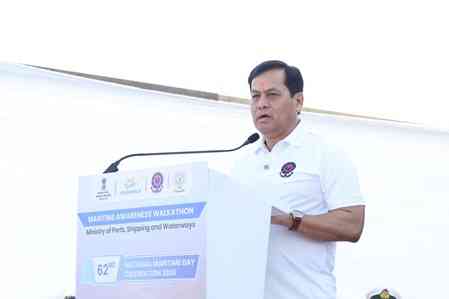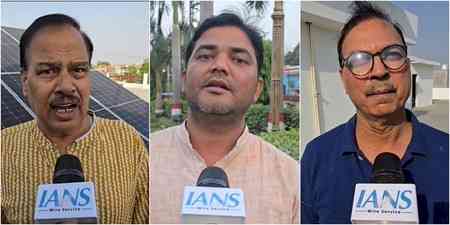Govt not taking control over judiciary, judges should be committed to nation: Rijiju
Law Minister Kiren Rijiju on Monday took a sharp jibe at the opposition, saying that many years ago, it was discussed that whosoever becomes a judge should work for the government but the present government believes that judges should be committed to the nation.

New Delhi, Dec 26 (IANS) Law Minister Kiren Rijiju on Monday took a sharp jibe at the opposition, saying that many years ago, it was discussed that whosoever becomes a judge should work for the government but the present government believes that judges should be committed to the nation.
He added that the opposition says that the government is trying to control the judiciary, but the government think judges should be committed to the nation and not to it.
The Law Minister also emphasised that people will not vote on the work of judges but their work is open for scrutiny in public opinion.
Speaking at the 16th National Conference of Akhil Bharatiya Adhivakta Parishad on the topic: "New challenges and opportunities in front of the Indian judicial system", Rijiju claimed that many years ago, some steps were taken by people who were in the government to supersede the judges' seniority, then there was a debate and discussion that a committed judiciary is needed for the government.
"Whosoever becomes the judge, he should work for the government, people used to think this. We think whosoever becomes the judge should be committed to the nation and not to the government. For us, a committed judiciary is for the country, but for some judiciary should be committed for their party, then they say we are trying to take control over the judiciary. We cannot think on these lines. Prime Minister Narender Modi said the country will run in the spirit of the Constitution and the government will work according to the Constitution...," he said.
The Law Minister said he had raised questions on the collegium system at various platforms and till 1993, there was no debate or discussion, but what happened after 1993, everybody knows. He pointed out that some political parties claim that there is friction between executive and judiciary and that the government is trying to take control over judiciary and at times, news outlets do it to keep masala in the news.
"But the PM has always said that the Constitution is the most sacred book and the country will be run by the Constitution," Rijiju said.
He said people can question lawmakers because "they have sent us to the Parliament but nobody can question the judges".
Referring to an event which was attended by the Chief Justice of India and other apex court judges, Rijiju said he had then said that "every 5 years we have to go to the public, but judges have not been elected by the public and they have come through their system".
He added that people will not vote on the work of judges but it is open for scrutiny in public opinion.
"Social media is open media, who can shut it down, tell me? We are public servants, committed to the public. People who work in judiciary will have to think hard that in some manner, they are also answerable... when will a judge accept that he/she is also answerable to the people of the country and if the judge inculcates this thinking, then the judge while passing the judgment will not get worried that something will go wrong," said Rijiju.
He said there will not be confrontation if the Constitution is followed by the judiciary, executive, and the legislature.
The Law Minister also said out that often big cases go to some lawyers and they make millions and added: "Why should all matters go to few lawyers because they can get justice through connections or they can do fixing, then it is not good."
He said those who appear in the Supreme Court can also appear in lower courts and by appearing in lower courts, their status will not diminish. "some lawyers say they appear in Supreme Court only and if they were to appear before lower courts then their status will diminisha. Such mentality is not good, as no judge is small and no court is small either, and all courts are same and no court is anybody's boss," he said.


 IANS
IANS 








